Engine Hot AC Off Impala But Not Overheating: 5 Best Maintenance Tips
Is your vehicle displaying the error engine hot AC off Impala but not overheating? This is one of the most common errors that many Impala owners come across. You need to carry out a full diagnostic of your Impala depending on the model there can be slight differences.
Read on as I have compiled a detailed guide that will highlight the 6 common problems, risks of engine hot AC problems, and helpful tips to prevent engine overheating. Let’s get started!
Table of Contents
Engine Hot AC Off Impala But Not Overheating: Why Does this Message Pops Up!
The message in an Impala for overheating usually originates with a warning “Engine Hot, AC Off”. This tells you that your engine temperature has just gone way beyond safe limits.
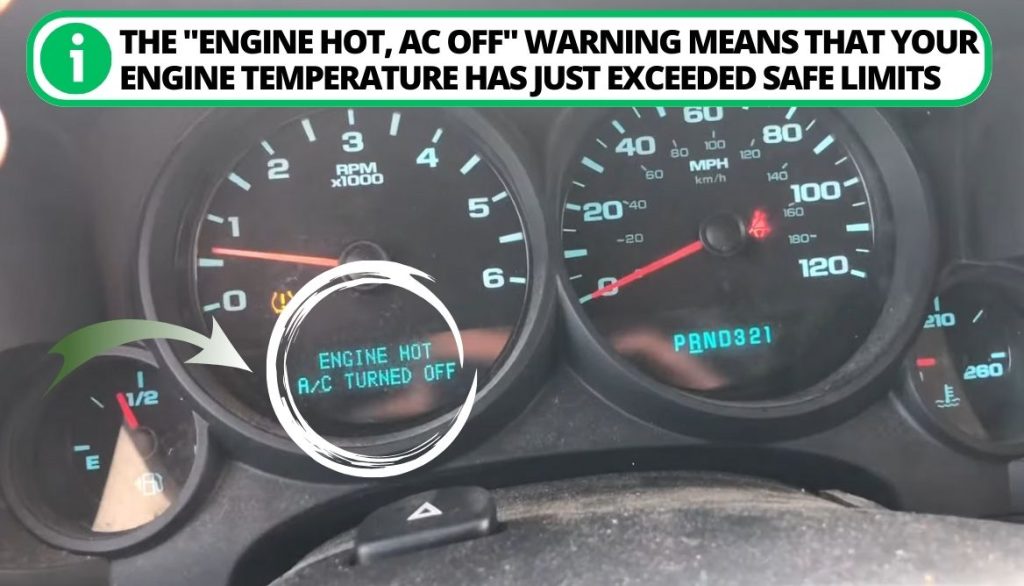
Shutting down your air conditioning is one of the first initiatives that you take to avoid any major problems. Now, let’s head on to the next section and read about the culprits behind the hot engine error.
6 Common Causes Discussed
When the engine hot error pops up, it will not disappear until and unless the issue is resolved. Listed below are the six most common causes behind this issue. Let’s explore them in detail!
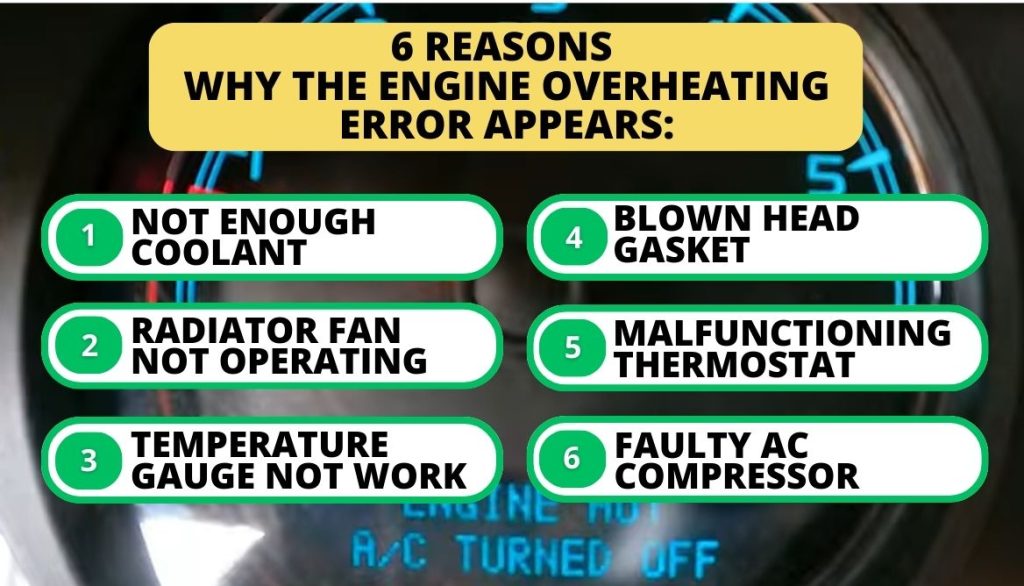
1. Not Enough Coolant
Low coolant level is one of the most common issues that you will face in your Chevy Impala or other car models. A leak in the hose or the radiator causes this technical mishap and results in a decline in the coolant level.
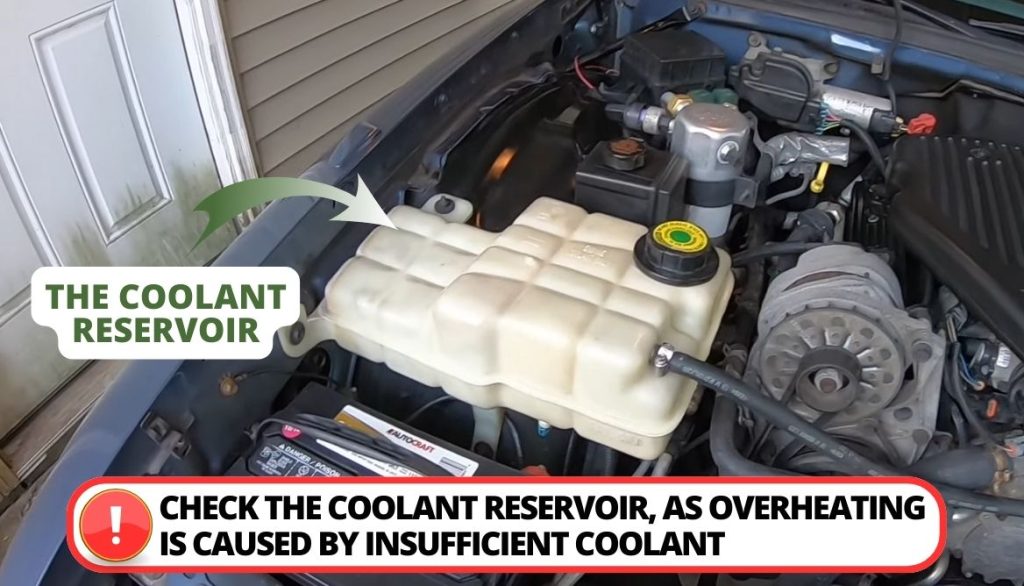
2. Radiator Fan Not Operating
The next component that you need to check is the radiator fan. This fan flushes out the heat generated by the engine and if is not working at an optimal level then all the hot air is trapped in the engine compartment.
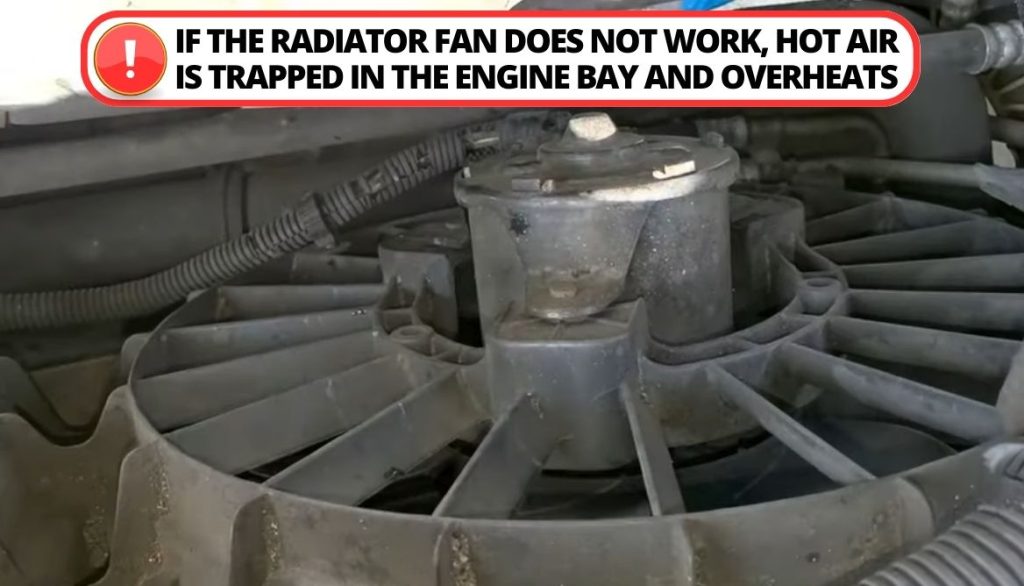
This results in overheating and the “hot engine warning”.
3. Temperature Gauge Not Working
The coolant temperature sensor responds when the coolant increases in temperature.
- According to the signal produced by the sensor, the ECU turns on and off the radiator fan.
- If it overheats, it activates to cool down both the coolant and also cools the engine.
- When an engine overheats, a broken sensor will fail to send a timely and accurate report.
- It allows the engine temperature to rise until something bad happens like malfunctioning or blowing up.
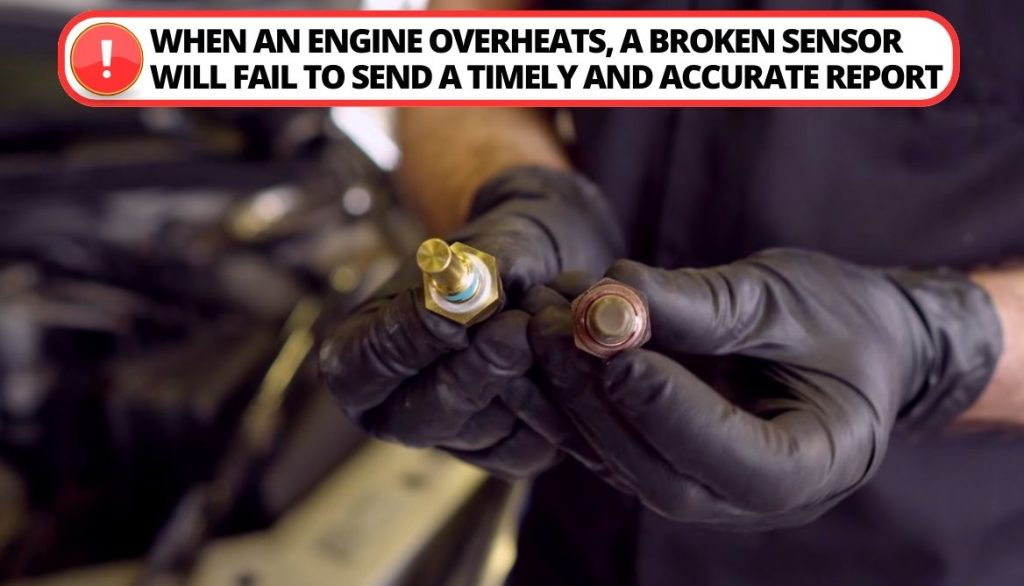
4. Blown Head Gasket and Engine Hot AC Alert
The head gasket seals are enough to build pressure for maintaining engine power. They also prevent the leaking of oil inside the engine and coolant from outside so that the engine does not overheat.
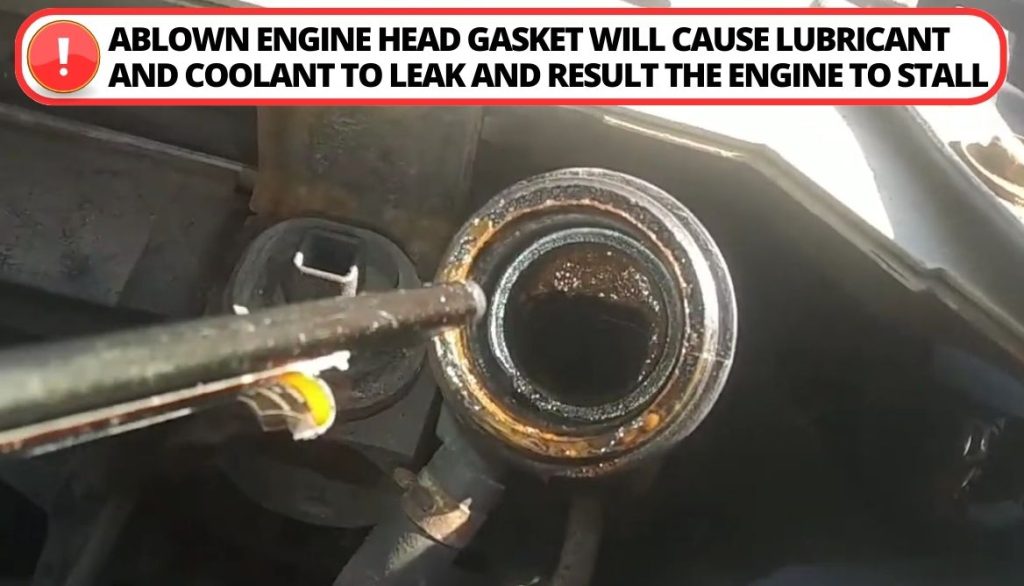
When the gasket blows out, there will be some leakage of coolant that cannot cool off and hence may cause the engine to cease, if it keeps running without enough oil or coolant.
5. Malfunctioning Thermostat
When the engine has generated enough heat, the thermostat valve releases the coolant into the engine compartment to cool it down. The thermostat is responsible for the flow of the coolant but if this critical part is blocked or faulty then it remains closed resulting in overheating of the engine.
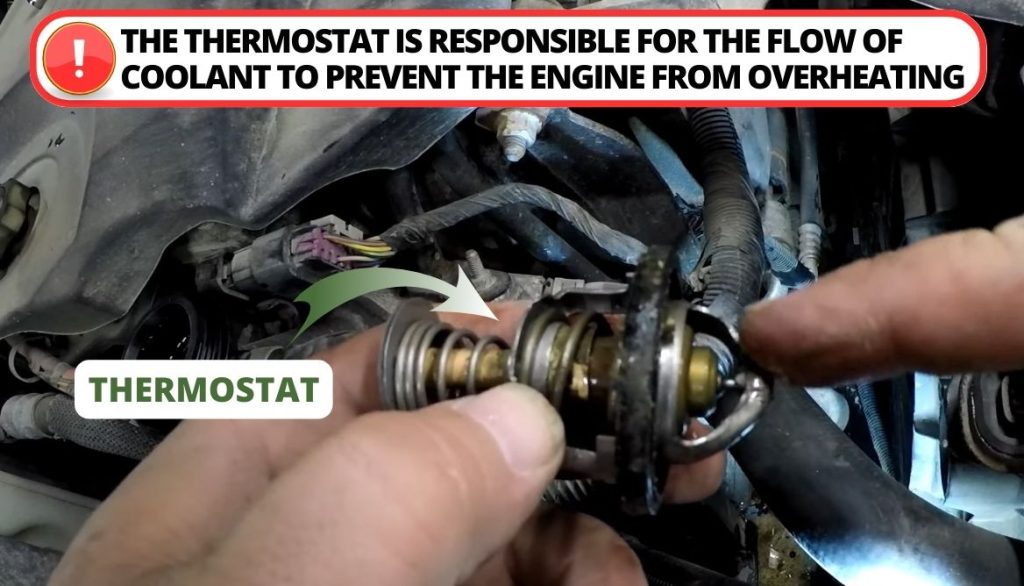
6. Faulty AC Compressor (Cooling System)
The air conditioning system needs a working compressor to convert the gas state of refrigerant into liquid. If it is faulty, then it will not allow the conversion of gas through the condenser as required.
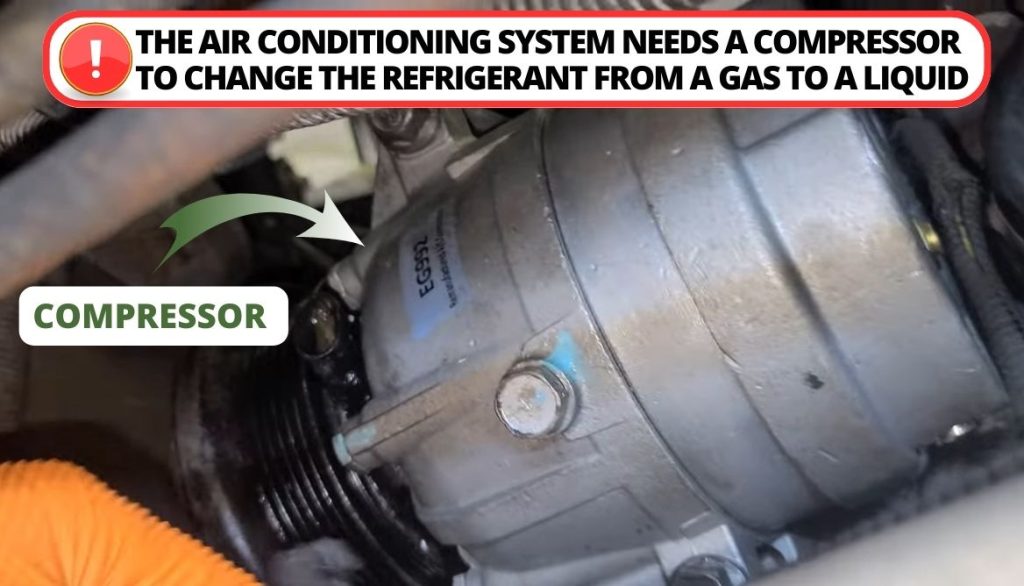
There will be no cold air sent by the AC to cool down your car once you turn on the AC switch. The car will just overheat and make some weird noise when you turn on the AC.
For more insights, check out this helpful video.
Is It Recommended To Continue the Journey With a Hot Engine Warning?
Driving with the “Engine Hot” warning is unsafe as it indicates your engine is overheating, which can lead to costly damage. Turning off the AC can make things better. Otherwise, continuing to drive with AC may worsen the problem.
Important! I would recommend you pull over and let the engine cool down. It is best to consult a mechanic for necessary repairs to ensure safe driving.
Impala Models: Solving the Overheating Problems!
Listed below are some of the famous Impala models and methods for effective troubleshooting to overcome overheating. Let’s have a look!
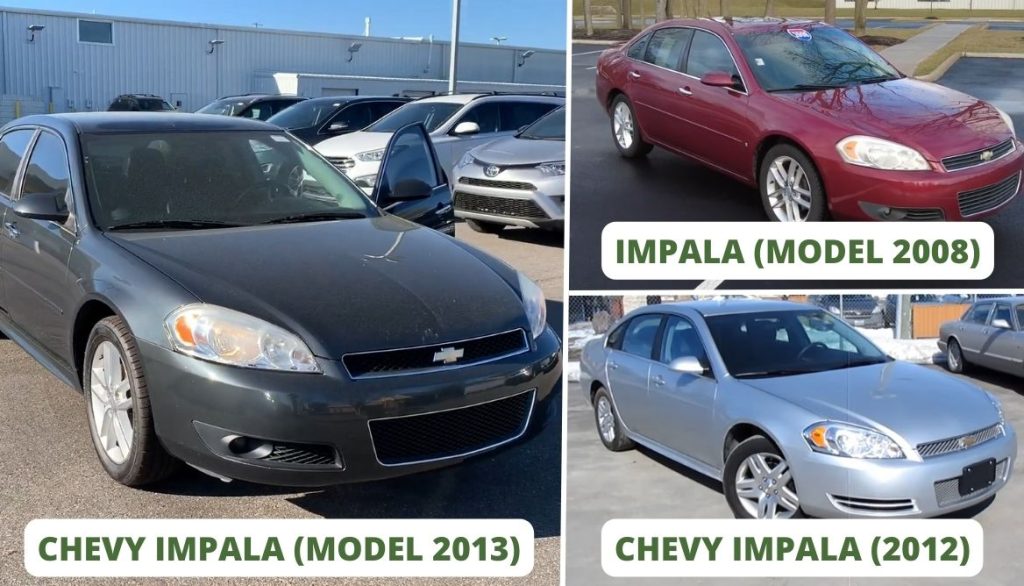
Chevy Impala (Model 2013)
If your 2013 Chevy Impala’s engine is overheating, there are a couple of things you can try to do about it.
- First, check the coolant level and refill as necessary.
- Secondly, it should be a matter of swapping out either the thermostat or water pump.
Impala (Model 2008)
If the engine on your 2008 Impala is overheating, turn the AC (cooling system) off, and then make sure to check a few things listed below:
- First, check the coolant level and make sure it’s topped up and there isn’t any leakage in the system. If it’s low, top it up and check thoroughly for any holes/damage.
- If you do not find any issue then your radiator should be blocked somewhere and you need to flush out to clean any debris in it.
Once you take the necessary measures, the engine should stay cool.
Chevy Impala (2012)
When your 2012 Chevy Impala is hot and the AC is off, you can take some steps to check what is potentially wrong with it. Here is what you need to do if the engine hot AC message appears!
- First, check if the engine coolant level is low. Add more if it is less and see if this fixes the problem.
- If the coolant level checks out fine then check the AC compressor to see if it has seized up.
Finally, if none of these methods work, then the refrigerant in the cooling system is too low. This has to be checked and refilled by a mechanic or expert.
5 Handy Tips to Prevent Engine Overheating Issues
I am going to share some effective methods that will help prevent overheating problems. Here is a list that I have compiled to help you out. Let’s dive in!
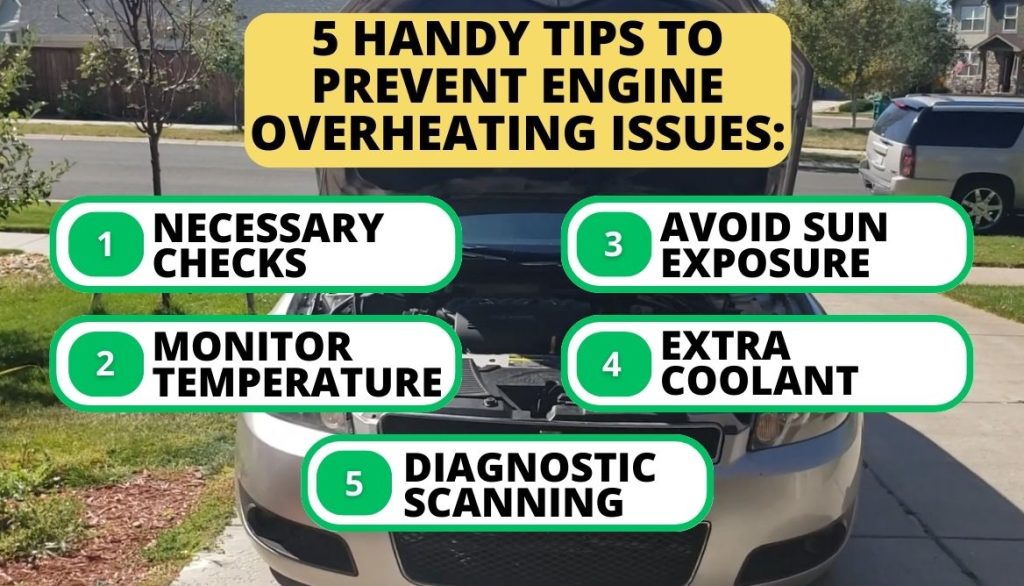
- Necessary checks: Timely perform Air filter replacements, engine oil changes, coolant flushes, and radiator cap inspections to maintain engine health and prevent overheating.
- Monitor temperature gauge: Constantly monitor the temperature gauge for safe engine temperatures. You also need to contact a professional mechanic if temperatures rise excessively.
- Avoid prolonged sun exposure: To prevent engine overheating, avoid the extended duration of sun exposure as direct sunlight generates a lot of heat under the hood.
- Extra Coolant: Always make sure to carry spare coolant in your car for emergencies.
- Diagnostic scanning: Utilize a diagnostic scan tool under the dashboard to check engine temperatures and diagnose temperature sensor problems via error codes.
FAQ
Why does my dashboard say engine hot AC off?
Your dashboard says engine hot AC off sign as the car’s electric cooling fan is not working properly and therefore the engine is overheating.
Why is my Impala overheating when idling?
Your Impala is overheating when in idle condition due to reasons such as a coolant leak (water pump, hose, radiator, etc.), a malfunctioning thermostat, or problems with the radiator fan.
What is the code P0128 on a 2008 Impala?
The P0128 error on your 2008 Impala indicates that the engine coolant temperature is below the optimal level to regulate the thermostat.
Will turning off AC stop car from overheating?
Turning off the AC can play a vital role in reducing the temperature if the car is overheating. The power consumption while the AC is operating can further add to the heat generated so it is better to switch it off.
Does the coolant sensor affect AC?
Yes, the coolant temperature sensor (CTS) can impact the car’s AC system. If the sensor malfunctions, it will signal the ECU with wrong temperature readings.
Conclusion
The final say is there can be many reasons for Engine hot AC off Impala but not overheating. Some of them include low coolant level, radiator fan not working, or faulty compressor.
You should always check your coolant level, keep a tab on temperature gauges, and avoid long sun exposures. It is recommended to not continue driving when your car engine is getting hot.
Have you ever come across this problem in your Impala? Share your experience with me in the comments below.

I`m a current Law Enforcement Officer working within the Counterterrorism Bureau in New York State. I have been Camping for over 20 years. My styles of camping include tent, car, truck, van, and RV travel trailer. I have a YouTube channel where I teach all types of camping with an entertaining method: https://youtube.com/@TheSmallsRVAdventures






